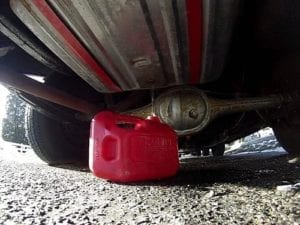Want to join in the revolution for an effective fuel management system? This year’s Fuel Management Conference is particularly important as it goes a step further by following up from what the first conference focused on.
The event will be held on the 25th and 26th of February 2016 at The Focus Rooms in Sunninghill, Johannesburg. It will convene leaders in the field of fuel management for a comprehensive overview of this dynamic field. The conference is a meeting of professionals in the various aspects related to fuel management, mining, construction, transport, manufacturing, reseller, agriculture among others. The inaugural symposium covered issues such as challenges in the fuel management industry, technology and fuel management solutions, curbing fuel theft, protecting and promoting interests of fuel retailers and optimized routing and scheduling, to reduce fuel consumption. This second edition will look at the latest technology and solutions in the area of fuel management. Moreover, the conference will also examine the measures that can contribute to a more fuel efficient transport system and the innovations that have been sustainable throughout the year and also highlight the importance of complying with regulations. Transport is a growing energy consuming sector and is expected to grow considerably in the medium-term. Measures to address energy efficiency will not necessarily be easy to implement, as has been the experience internationally where motor vehicles have become the main means of transport. These among others are some of the factors that will be discussed in great detail.South Africa ranks 40th for the most expensive fuel and businesses throughout the country thus leveraging the benefits of alternative fuels to reduce fuel costs, decrease vehicle and equipment emissions, and improve air quality. While the benefits may be significant, the use of unconventional fuels and technologies the summit seeks to deliberate on present alternative fueling and infrastructure challenges, capital investment, training difficulties, and more.
The conference will cover topics relevant to the current status of petrol, oil and diesel consumption, liquid fuels impact on climate change, impact of fuel theft in South Africa, challenges, opportunities in the petrochemicals sector, regulatory and policy framework. Registration is now open for the conference. For more information contact Christopher at 011 325 2485.






